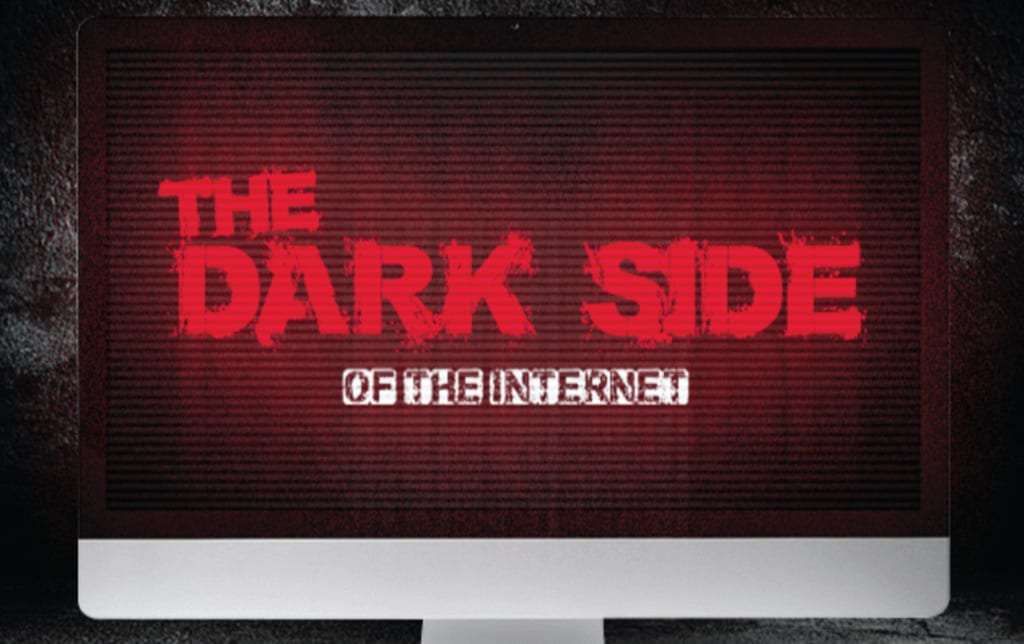The Dark Side of the Internet: 5 Ways to Protect Your Kids and Yourself
Dark side of internet

The internet is a vast, wondrous place. It can bring us information and entertainment on a whim. Despite this convenience, the internet is also home to many predators and criminals. Along with the innocent chats, videos and games are dark corners of the World Wide Web inhabited by stalking creeps and sexual predators. You wouldn't leave your child unattended in a public space without supervision, so why would you let them explore these places alone?
While we all have valuable information stored on our devices- from personal photos and messages to bank account numbers- we may not be fully aware of how vulnerable we're leaving ourselves. Take steps now to protect yourself and your children before it's too late. Here are five ways to safeguard yourself from hackers and other bad guys online.
What you need to know
The internet is a vast, wondrous place. It can bring us information and entertainment on a whim. But unfortunately, like any public space, the internet also has its dark corners. Along with innocent chats and videos are stalking creeps and sexual predators looking to steal your information or do other terrible things.
This blog post will tell you five ways to safeguard yourself from hackers and other bad guys online.
1) Be Careful of Public Wifi: Public wifi is the best way for a hacker to steal your information because it's open and unsecured. When you're browsing on public wifi, make sure you never enter any personal information into an unsecured website or check your bank account balances online. If you have sensitive documents or files that you need to access, use a VPN service so it remains secure from hacking attempts.
2) Keep Your Passwords Strong & Unique: One of the most common ways people get hacked is through weaker passwords that are easy for others to figure out by guessing or social engineering (like getting a hold of someone's email address). Check out this list of strong passwords to help protect your online accounts at all times. A good rule of thumb is generating long passwords with letters, numbers, symbols and capitalized words- but don't forget those special characters!
3) Use Two Factor Authentication: Two factor authentication adds another layer of protection between your banking account and being hacked with stolen credentials (username/password). You log in using your username
What should I do?
In this digital age, it's important to make sure your personal information stays private. Begin by taking these five steps:
1. Update your social media privacy settings - Posting too much on social media can leave you vulnerable to people who want to steal your identity or scam you.
2. Change your passwords regularly - This ensures that anything stored on the account is still safe.
3. Install anti-virus software on your computer - Computers are a common target for hackers and viruses, so protection is key.
4. Don't give out personal information on the internet - This includes last names, home addresses, phone numbers and credit card numbers.
5. Set up parental controls on devices with internet access - Keep children safe by limiting what they have access to online while making sure they're still able to enjoy their favorite shows and games on your device
How can I protect my kids from the internet?
The best way to protect your kids is to keep them away from the internet. This may be easier said than done, but it's not impossible. You may want to consider installing parental control software on your kids' devices. With a few clicks and some self-control, you can set up parental controls that will block out harmful sites and content. These apps are great for blocking inappropriate content that your children may come across on the internet, as well as keeping them off social media and chat sites where they could be contacted by strangers who may wish them harm.
As an adult with a smartphone, you need to be aware of how the device is being used in public spaces. If you share the phone with someone else or use it in public places like libraries or coffee shops, set up a privacy lock that requires a passcode. This way, if someone picks up your phone and starts scrolling through your personal information they will have to enter a code before they can access anything of importance.
You should also avoid using public Wi-Fi networks when possible as these networks are more vulnerable to hackers than private ones. If you need to connect while on the go and don't have access to Wi-Fi at home or work, look for any open connections with good reviews first before logging in blindly.
Monitoring online activity
Monitor your children's online activity. It is important to be aware of what your children are doing and how it is impacting them. There are many parental control apps available that allow you to monitor the websites your child visits, who they communicate with and for how long.
Additionally, installing software on devices such as computers, tablets or smartphones can help you monitor what goes on in the digital world of your kids. It may not always be necessary to install monitoring software because some browsers have built-in features that allow you to see which websites have been visited and when. These tools can give you an idea of what they're looking at without invading their privacy.
Teaching kids digital citizenship
Teaching your kids to be digitally literate is the best way to protect them from the dark side of the internet. A recent study found that at least 1 out of 6 children are victims of cyberbullying, and more than 80 percent of teens have been bullied on social media. Teaching digital citizenship is one way you can help your child have a safe, happy experience online. With digital citizenship, you can teach kids about how to behave in an online space. You can talk about how it may not always be safe to share personal information with anyone online, especially if they ask for it or seem suspicious. Talk about what's private and what should stay private-and why. Explain what phishing is and how people use social engineering techniques to get your information- like pretending to be someone else in order to trick you into giving up your password or other sensitive information. Make sure they know that anything they put online- including pictures, status updates, and messages- could come back to haunt them later on when they're applying for jobs or college admissions.
Teaching children digital safety habits
It's important to teach your children the appropriate digital safety habits. One of the most important things you can do is make sure they know not to share any personal information with strangers. Explain to them that they should never give out their name, address, phone number or any other identifying information if someone requests it from them. It's also important for kids to remember that if anyone ever sends them inappropriate pictures or messages, they should tell a parent immediately and delete the message.
Another thing parents can do is talk to their kids about the importance of passwords and privacy settings on devices. Tell your child not to share their password with anyone, and make sure your passwords are strong enough that no one could guess it. You can even set up parental controls on your home network so that only approved devices have access.
Make sure you take precautions for yourself as well! Set up two-step verification on all accounts that offer it- this way, hackers would need more than just a password to get into your account. You should also be careful where you download apps in order to avoid malware and viruses. And don't forget that internet browsing history will stay saved even after you close down your browser- clear out these histories when you're finished using web browsers like Chrome or Safari so no one can see what sites you've visited in the past!
Conclusion
As technology advances, our society is advancing with it. This can be a positive thing, but with new advancements comes new risks. The Internet is a great resource for your children to research and learn, but it also comes with its risks. There are many different ways to protect your children from the worst of the Internet, but teaching them digital citizenship and digital safety habits is one of the most important. If you want to keep your children safe online, teaching them to be smart online is a great place to start.





Comments
There are no comments for this story
Be the first to respond and start the conversation.